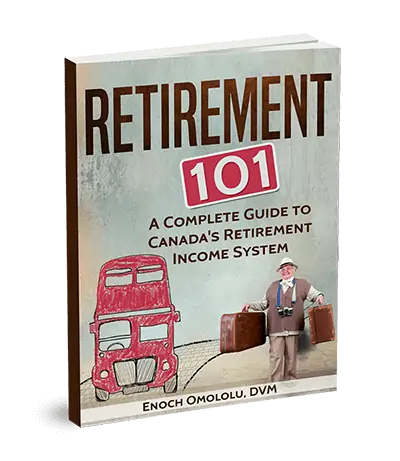As older Canadians near retirement, an understanding of pensions and other retirement benefits become very important. Retirees are often interested to know the differences between CPP and the Old Age Security pension.
Questions that are often asked include:
- What is the difference between the Old Age Security and Canada Pension Plan?
- How much can I expect in pension or retirement benefits?
- Should I elect to take CPP early, or should I delay it by a few years?
- What can affect my retirement benefits?
- What is my life expectancy?
These are just a few of the questions that come up for seniors when retirement is on the horizon or for younger folks who want to start planning and saving for retirement. In this article, we will compare and contrast the CPP and OAS.
Canada Pension Plan (CPP) and Old Age Security (OAS) are two of the three main pillars of Canada’s retirement income system. The third pillar includes workplace pension plans and RRSPs.
Although both CPP and OAS benefits are available to retirees, they are different in many ways, including how they are funded, how much you can receive, how they are calculated, supplementary benefits, and eligibility rules.
CPP and OAS: Comparisons and Contrasts
| Canada Pension Plan | Old Age Security | |
|---|---|---|
| 1. Funding | Individuals and their employees are required to contribute to the CPP and/or QPP. CPP/QPP are contributory retirement pensions. | OAS is funded out of general government revenues, and individuals are not required to have contributed in order to receive it. It’s a non-contributory retirement pension. |
| 2. Contribution rate | You are required to contribute to the CPP if you’re older than 18, earn more than $3,500/year and work outside of Quebec. The contribution rate is 11.90% on pensionable earnings (5.95% employee and 5.95% employer) for a maximum total of $7,508.90 (i.e. $3,754.45 each) in 2023. | No individual contribution is required. |
| 3. Monthly amount received | Depends on how much contributions you have made to the CPP and for how long. | Depends on how long you have lived in Canada after turning age 18. |
| 4. Supplementary benefits | Alongside retirement pension, other benefits available under the CPP are survivor’s pension, children’s benefits, disability benefits, and post-retirement benefits. | Supplementary benefits under OAS include Guaranteed Income Supplement, Allowance, and Allowance for the Survivor. |
| 5. Age of Eligibility | The standard age to start receiving CPP is age 65. You can receive reduced CPP as early as age 60 or can postpone to age 70 for an increased CPP. | You must be at least 65 years of age to be eligible for OAS. Individuals can defer OAS for up to 5 years to get a higher monthly pension. |
| 6. Taxes | CPP is taxable income. | OAS payments are taxable. However, GIS and Allowance are not taxable. |
| 7. Clawback Option | CPP pension is not subject to a “Recovery Tax” or clawback, i.e. it’s not income or means-tested. | OAS benefits may be clawed back if your income exceeds a certain amount. For 2023, if your net income exceeds $79,845, all or part of your OAS pension is “Clawed Back”. |
| 8. Benefits amounts for 2023 | The maximum monthly CPP payment amount for 2023 is $1,306.57. The average monthly benefit is $717.15. | The maximum monthly OAS benefit for April to June 2023 is $698.60 (age 65 to 74) and $768.46 (age 75 and older). |
| 9. Income splitting | Spouses can elect to split their CPP pension as part of a tax-minimization strategy. | OAS pension cannot be split between spouses. |
| 10. Other provisions | CPP has other provisions, including credit splitting for divorced or separated couples, child-rearing, and general drop-out provisions. | OAS pension has no other provisions. |
| 11. Inflation adjustments | CPP rate increases are calculated once every year using the Consumer Price Index (CPI). | OAS benefits are adjusted quarterly based on changes in the CPI. |
| 12. Provincial differences | CPP is for individuals who work in all provinces except Quebec. For those who work in Quebec, the provincial plan is called the Quebec Pension Plan (QPP). | The OAS is applicable to all Canadian provinces. |
Related reading:
- CPP and OAS Benefits for Surviving Spouses and Children
- 10 Strategies To Minimize OAS Clawback
- GIS, Allowance, and Allowance for the Survivor
- How To Generate Regular Income From Your RRSP
- Best Robo-Advisors in Canada
For more information on retirement benefits, check out the articles above.






Hi Enoch, thank you for your work to help all people in need of information on how to retire well in Canada. I also thank to all other participants in this blog for helping out by sharing information and experiences. We plan to retire in Ontario or Quebec. We used to live in both provinces.
My question is about OAS program: for the residence calculation years in Canada, I read in the Totalization Accord US-Canada that the residence in the US will be added to the one in Canada (for Canadian citizens returning to Canada) I am asking this because I was working and living in the US for already over ten years. Will these ten years could be added to the total years of residence used for the OAS? Please let me know if this is correct or not.
If I am 66 and born in September 1954 and have not taken either CPP or OAS. Can you tell me what my payments would be if I started to take them in January 2021?
@Craig: That’s difficult (maybe even impossible) to say. Your CPP amount will depend on how much you contributed to the plan and for how long you made those contributions. For OAS, you will likely qualify for the full amount based on spending 40 years in Canada since you turned 18. The current OAS maximum is just over $614. So, you would be expecting something close to this amount for OAS.
I rec’d a correction amount from GIS for a previous year. I started working as I was bored, now I am on Medical EI but have rec’d no deposits from EI although I was approved. ?Due to GIS?
Can you receive OAS if you’re getting CPP
@Sheenah: Yes, you can receive both at the same time.
Hello Enoch
My husband is turning 65 this year and we are expecting that he would receive both the CPP and the OAS.
However, I was wondering if his OAS would be clawed back if I am still working and bringing in $80,000.00 plus per year of my own income. Or is the OAS based on his income alone.
Thank you
@Donnamarie: OAS is not clawed back based on family income but individual income. If eligible for GIS (which doesn’t seem to be the case), then family income can impact how much you receive in GIS benefits.
I live in Quebec and I’m not quite sure I understand all of this. Does this mean that I will I be receiving QPP + OAS only, and if you reside in the other provinces you receive CPP + OAC? In other words, I only contribute to the QPP and not the CPP?
@Elizabeth: Yes, you will get QPP and OAS in Quebec. Eligible seniors outside of Quebec receive CPP and OAS. This article uses CPP and QPP interchangeably (although some details differ).
My name Tom Mamarelis.
I have a question My Pensions OAS and CPP who
deposited in January is for January or for February?
An answer will appreciated.
Thank you.
@Tom: January CPP and OAS payments are for January. Each of these benefits are paid monthly around the last week.